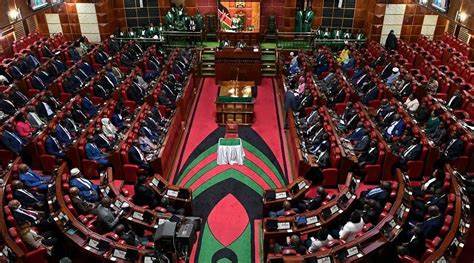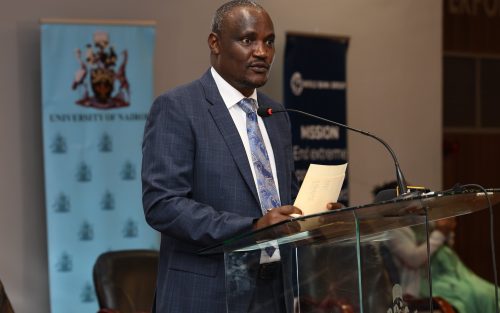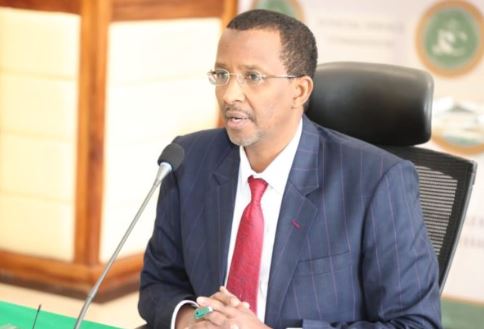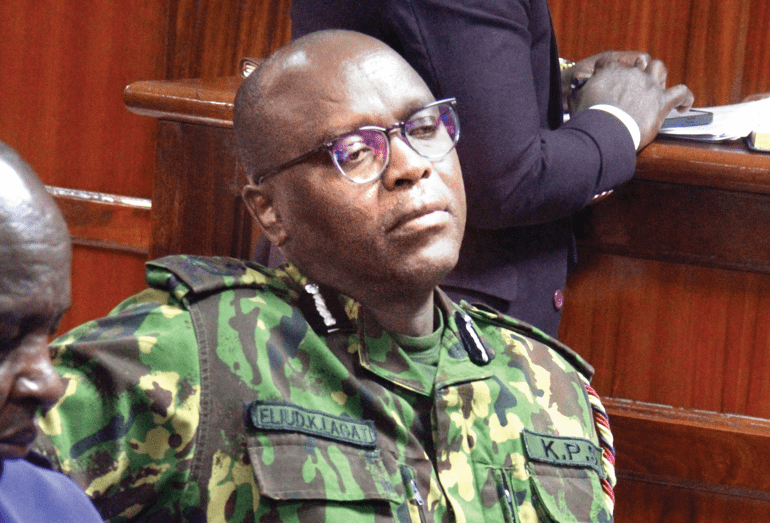Mbadi to present Ksh4.239 trillion budget in parliament on June 12

The National Treasury Cabinet Secretary, John Mbadi, is set to present the Ksh4.239 trillion national budget for the 2025/2026 Financial Year before a joint sitting of Parliament on Thursday, June 12, 2025.
This will mark his first official Budget Day address since taking office.
The expansive budget, structured to support Kenya’s economic recovery and long-term development goals, is anchored on a projected economic growth rate of 5.3 per cent — a rise from the 4.7 per cent recorded in 2024. According to the Treasury, this growth will be driven by increased productivity in agriculture, tourism, construction, and the ICT sectors.
The budget’s gross expenditure is divided into three key categories: Ksh1.79 trillion for recurrent expenditure, Ksh1.337 trillion for Consolidated Fund Services (CFS), and Ksh707.8 billion set aside for development expenditure.
Education takes the Lion’s share
Education remains a top priority, with an allocation of Ksh701.1 billion — the highest share of the national government budget, representing 28.1 per cent.
The funds will be directed toward capitation grants, teacher salaries, and infrastructure development in both basic and higher education institutions.
“The government is keen on strengthening the foundation of our human capital through enhanced access and quality in the education sector,” Mbadi is expected to say during the budget reading.
Infrastructure and ICT boost
The Energy, Infrastructure, and ICT sectors follow closely, receiving a total of Ksh500.7 billion.
This includes Ksh195 billion for road construction and maintenance, Ksh119 billion for housing and urban development, and Ksh92 billion for projects in the energy and petroleum sectors.
A notable component of the ICT sector is the Kenya Digital Economy Acceleration Project, which has been allocated Ksh3.7 billion. The project aims to install 35,000 kilometres of fibre optic cable, connect 43,000 public institutions, and establish 15,000 Wi-Fi hotspots across the country.
Security, Health and Agriculture Allocations
National security has been allocated Ksh251 billion, a move aimed at ensuring continued safety and stability amid growing regional and domestic challenges.
The health sector will receive Ksh136.8 billion. This includes Ksh54 billion for referral services, Ksh16.6 billion for disease control programmes, and Ksh10 billion for emergency and chronic illness interventions under the Universal Health Coverage (UHC) initiative.

Agriculture will benefit from Ksh78 billion, with Ksh8.2 billion dedicated to fertiliser subsidies and Ksh10.2 billion to support value chain development — a critical measure to enhance food security.
Support for MSMEs and devolution
In a bid to support Micro, Small and Medium Enterprises (MSMEs), which contribute an estimated 24 per cent to Kenya’s GDP, the government has allocated over Ksh12 billion.
These funds will go toward County Aggregation and Industrial Parks, as well as enterprise recovery programmes aimed at boosting local entrepreneurship and job creation.
Counties will receive an equitable share of Ksh405.1 billion to enhance service delivery at the devolved level.
Affordable Housing and job creation
In line with President William Ruto’s housing agenda, the budget outlines a plan to construct over 215,000 affordable housing units and 94,000 hostel beds.
“This initiative is expected to stimulate employment opportunities for youth and boost the construction sector,” the budget draft reads.
Fiscal responsibility and sustainability
Speaking ahead of the budget presentation, Budget and Appropriations Committee Chairperson Samuel Atandi stressed the need for prudent fiscal management.
“This budget must not only support growth but also safeguard the country from debt vulnerabilities,” Atandi said, amid growing concern over Kenya’s rising debt levels.
The budget presentation on June 12 will set the tone for government spending and development priorities over the next year, with Kenyans and lawmakers keenly watching how the Treasury balances growth, equity, and fiscal discipline.















